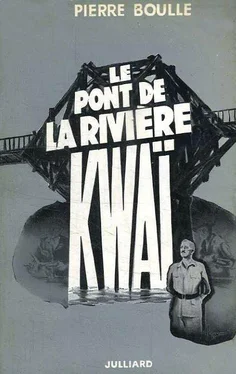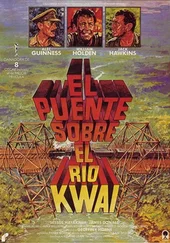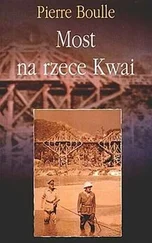He could expect no outside help. He was left entirely to his own devices. This was what he had wanted, what he had welcomed. He had felt proud and inspired. His personal powers had seemed invincible. Surely they could not suddenly fade away, leaving him stranded like some machine with a sabotaged engine! He closed his eyes on the surrounding world and looked inward on himself. If there was any hope of rescue it lay there, and not on this earth beneath these skies. In his present misery the only gleam of hope he could see was the hypnotizing flame of those mental pictures which are born of hallucination. His imagination was his only refuge. Shears had been worried by that. Warden had wisely not declared whether it was a virtue or a fault.
He had to combat the evil effects of obsession by the counterpoison of self-imposed obsession; to unwind the film on which the representative symbols of his spiritual capital were inscribed; to examine with an inquisitor’s fury every specter in his mental universe; to hunt passionately through these immaterial witnesses of his existence until he found a sufficiently absorbing figure to occupy the whole realm of his consciousness without leaving a single gap. Feverishly he reviewed them all. Hatred of the Japanese, sense of duty—these were ludicrous irritants which could not be expressed in a sufficiently clear form. He thought of his superior officers, of his friends who were relying on him entirely and who were now waiting on the opposite bank. Even that thought was not sufficiently real. It was barely sufficient to induce him to sacrifice his own life. Even the intoxication of success was now of no avail. Or else he would have to envisage victory under a more palpable guise than that half- extinguished halo of glory whose fading beams could no longer find any material element on which to shine.
A thought suddenly flashed through his mind. It flashed with startling clarity for a split second. Even before realizing it, he had the feeling that it was sufficiently significant to give him hope. He struggled to retrieve it. It flashed again. It was last night’s vision: the sheet of drawing paper under the projector lamp; the countless designs for the girder on which the brown squares were superimposed and which were dwarfed by a heading endlessly repeated in huge shining letters: the word DESTRUCTION.
It went on flashing. From the moment that it was instinctively recalled and triumphantly occupied his thoughts, he felt that this alone was sufficiently consistent, sufficiently complete, sufficiently powerful to make him rise above the disgust and horror of his wretched carcass. It was as exhilarating as drink and as soothing as opium. He gave in to it completely and took care not to let it escape him again.
Having reached this state of self-induced hypnosis, he was not surprised to see some Japanese soldiers walking along the bridge over the River Kwai.
Shears also saw the Japanese soldiers, and lived through another nightmare.
For him, too, time was passing at a relentlessly slow pace. After the dismay caused by the thought of the charges, he had pulled himself together. He had left the partisans in position, and climbed a little further up the slope. He had stopped at a point from which he could see the bridge as well as the river. He had noticed the little waves around the piles and examined them through his field glasses. He imagined he could see a patch of brown rising and falling with the movement of the eddies. Instinctively, involuntarily, and from a sense of duty, he had racked his brains to discover what personal action he could take to avert this stroke of misfortune. “There is always something further to be done, some extra action to take,” so the Force 316 authorities asserted. For the first time since he had been engaged in this sort of work Shears could think of nothing to do, and he cursed himself for his impotence.
For him the die was cast. He had no more chance of retaliating than had Warden, who from up there had no doubt also discovered the treachery of the River Kwai. Joyce, perhaps? But had he even noticed the change? And who could tell if he would have the necessary initiative and instinct to deal with such a catastrophe? Shears, who was used to judging the size of the obstacles to be overcome in situations of this sort, bitterly regretted not having taken his place.
Two endless hours had dragged by. From the spot he had reached he could see the hutments of the camp. He had noticed some Japanese soldiers moving about in full- dress uniform. A hundred yards away from the river there was a whole company of them waiting for the train, lined up in honor of the authorities who were to open the railway line. Perhaps the preparations for this ceremony would occupy all their attention? Shears hoped so. But a Japanese patrol had emerged from the guardroom and was now on its way to the bridge.
Now the men, led by a sergeant, were moving along the platform in two ranks, one on either side of the track. They walked slowly along in a leisurely manner, their rifles carried carelessly over their shoulders. Their mission was to make a final inspection before the train arrived. From time to time one of them stopped to lean over the parapet. Clearly, it was only to salve their consciences, to carry out their orders, that they were performing this task. Shears tried to persuade himself that their hearts were not in the job—which was probably true. No accident could happen to the bridge over the River Kwai whose growth in this God-forsaken valley they had personally witnessed day by day! “They’re looking without seeing,” he told himself as he watched them advance. Each step they took echoed through his head. He forced himself to keep his eyes on them and follow every movement they made, while he silently delivered a vague prayer to whatever god or devil or other mysterious power there might be. He automatically judged their speed and the distance they moved along the bridge in every second. They were now more than halfway across. The sergeant leaned over the parapet and spoke to the leading man, pointing at the river. Shears bit his hand to keep himself from shouting out loud. The sergeant laughed. He was probably making some remark about the fall in the level of the water. They moved on again. Shears was right: they were looking without seeing. He felt that by following them like this with his eyes, he would be able to exercise an influence on their sense of perception—a miracle of telepathic suggestion. The last man had gone past. They had noticed nothing.
Now they were coming back. They were moving along the bridge in the opposite direction at the same ambling pace. One of them leaned head and shoulders right over the dangerous section, then stepped back into the ranks.
They had gone past again. Shears mopped his brow. They were moving away. “They have seen nothing”; automatically he whispered these words to himself, to convince himself all the more of the miracle. Anxiously he kept them under observation and did not take his eyes off them until they had rejoined the company. Before allowing his hopes to soar he was seized by a strange feeling of pride.
“If I’d been one of them,” he muttered, “I shouldn’t have been so careless. Any British soldier would have spotted the sabotage. Ah well, the train won’t be long now.”
As though in answer to this last thought, he heard a harsh voice shouting out orders on the enemy bank. There was a stir among the men. Shears looked into the distance. On the horizon of the plain a small cloud of black smoke proclaimed the approach of the first Japanese convoy to cross into Siam, the first train, loaded with troops, munitions, and high-ranking Japanese generals, which was about to cross the bridge over the River Kwai.
Shears’s heart softened. Tears of gratitude to the mysterious power ran down his cheeks.
Читать дальше











